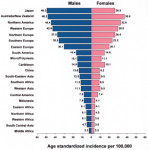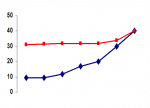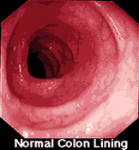Butter and cream therefore historically are staple ingredients in the kitchen, a lot of sauces use them as a base etc. But this leads me back to the question How come we have the French Paradox with lower incidence of obesity and heart diseases etc. I accept there are arguments it is an illusion in the context of how data is collected, that is a discussion in itself.
I suppose what I am trying to suggest or asking is whether there is a link between our modern lifestyles and some of the illness people suffer from.
Does it induce a chemical reaction within the body that the chemical structure of enzymes etc become compromised, and that's what is leading to the problems.
I suspect Bellars is the person best qualified to answer that.
All interesting stuff
Channa
Red wine consumption used to be the favourite explanation for the French paradox. Red wine contains chemicals called polyphenols that can lower blood pressure and inhibit some metabolic processes. One such polyphenol called Reseveratrol received a lot of attention a few years ago because it was found to decrease the activity of an enzyme that is also decreased in various organisms (yeast, mice, nematodes, etc) during caloric restriction (restricting the intake of calories in these organisms leads to dramatic increases in their lifespans). Therefore, some unscrupulous individuals started peddling resveratrol as the elixir of life.
Polyphenols that are proven to lower blood pressure (vaso-dilatory) are also present in fruit, tea (particularly green tea) and high cocoa chocolate. They are generally bitter and astringent (dry your mouth out).
Of course, there are many plausible theories to explain various population-based phenomena and eating the main meal at lunch time, a less stressful lifestyle, etc are equally valid.
Much of the scientific evidence for lifestyle effects on health come from population-based cohort studies (epidemiology), in which dietary/lifestyle components of large numbers of individuals are collected together with health outcomes. Statistics-based analyses are then performed to determine if specific health outcomes associate with specific dietary/lifestyle components. While these can be informative, particularly those based on very large numbers of individuals, they are ultimately only indicative of an association (not cause and effect) and are plagued by confounding factors e.g. people who eat healthily tend to exercise more, etc, etc, making it difficult to tease out clear associations. Unfortunately, it is very difficult to study the effects of diet and lifestyle on health for a number of reasons. Unlike a drug, it's very hard (impossible) to do clinical trials on lifestyles. The effects of a change in lifestyle on health usually take a long time to be of a significant magnitude to be measurable. Finally, what is health anyway and how do you measure it?
"I suppose what I am trying to suggest or asking is whether there is a link between our modern lifestyles and some of the illness people suffer from." - definitely, the evidence for a detrimental effect of a western lifestyle on numerous chronic diseases is overwhelming e.g. here are a couple of figs. The first one shows the incidence of colorectal cancer in various regions of the world, clearly CRC is a western disease. The second shows the rise in incidence in Japan and mirrors the adoption of a western lifestyle.


edit: the second figure hasn't come across well, the red line is CRC incidence in the UK, blue line is Japan and the y-axis is male cases per 100,000 per year. The x-axis should read years from 1960 to 1990.



